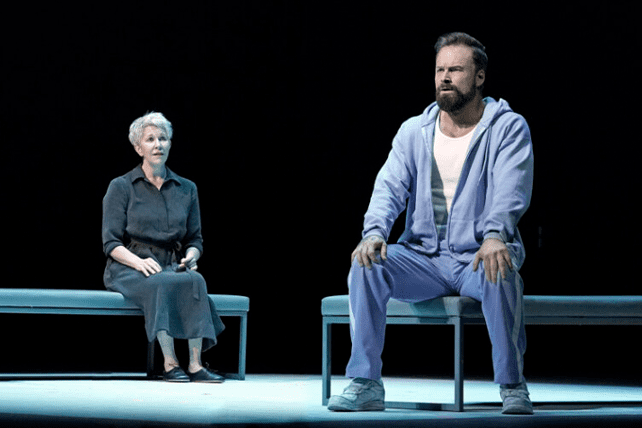One day a father whose son had been killed approached the nun, saying, “All this time you have been visiting that (convict). We needed you too. Where have you been?” she recalled.
In the opera, she transforms to forgive Joseph, and Joseph transforms to accept his responsibility for his crimes and also forgive himself, offering himself as a sacrifice in hopes that his death will provide peace, though his own mother and younger brothers suffer.
While the opera doesn’t touch on race (Prejean, Joseph and the victims are white), Prejean has spoken about the disparity in treatment of white and Black inmates in Angola.
Jamila Hodge, CEO of Equal Justice USA, called the opera “truth-telling” at the panel. “When we talk about justice in the criminal justice system, essentially what we’re talking about is punishment,” she said. “And so our work is how do we deal with violence? We have to deal with this very hard thing, but how do we do it in a way where the foundation is different, that it’s not the foundation of racial oppression which the entire system was built on?”
Hodge advocates for a restorative justice model aimed at centering victims’ needs, rather than what the state needs to prosecute a crime, and encouraging offenders to dialogue with victims about the harm they caused.
The cast also believes in the power of art, like faith, to change people. DiDonato, who plays Sister Helen, has visited prisoners in Sing Sing since 2015 and prompted Carnegie Hall to bring an abridged version of the opera to the inmates there recently through its music education initiative. Fourteen inmates sang in the chorus with the cast.
Ultimately, the opera alone is not likely to change hearts and minds hellbent on preserving capital punishment. Joseph’s crimes are not watered down. But Prejean’s redemptive arc shows another path, a messy attempt at becoming God’s conduit of unconditional love.
“Even if you’re not a person of faith … it makes you think, what would it mean for me to think about my relationship to other humans and to feel this kind of a demand outside of this other scale of the justice system or punitive right and wrong, guilty or innocent,” Reklis said.
“Dead Man Walking” runs through Oct. 21 at the Metropolitan Opera, and a live performance will be broadcast to movie theaters that day. See local showings here.
This article originally appeared here.

